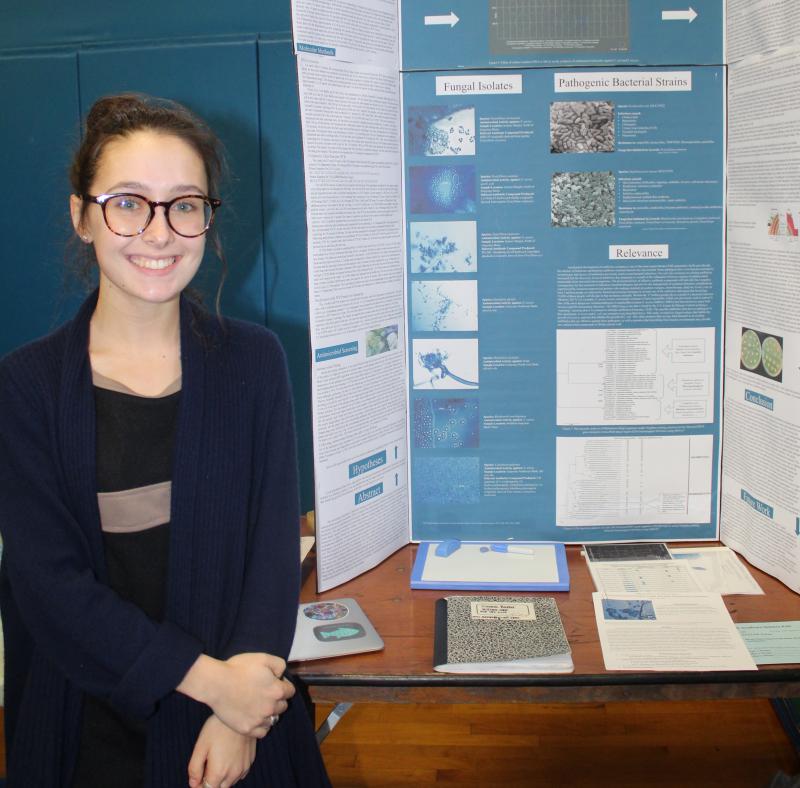Rochester resident awarded at international science fair
Rochester resident Emma Keeler was awarded second place in the microbiology division at the Intel International Science and Engineering Fair, held in Pittsburgh, Pennsylvania.
The Intel International Science and Engineering Fair's (Intel ISEF) website bill the competition as the largest pre-college science competition in the world
Falmouth Academy junior Emma Keeler, who won first place at the Massachusetts Science Fair earlier this month, competed at the Intel ISEF. She placed second in the microbiology category for her project, "Bioprospecting for Benthic Fungi and Their Bactericidal Antibiotics."
Keeler said met people from around the country and around the world who are passionate about scientific inquiry and discovery. “I was so inspired because each individual project could make a difference in the world, let alone all of them together. I often hear that my generation is doomed, but it was impossible not to feel optimistic walking through the exhibit halls," she said.
Keeler’s project focused on prospecting hydrothermal environments for new sources of antibiotic compounds, to counter the global threat of antibiotic resistance.
Keeler believed that any species living near an ocean vent had an extra resistance to toxins, due to ingesting the toxins released from the vents. She had difficulty testing out her theory, though. Because the specimens live on the ocean floor, they're difficult and expensive to obtain.
Keeler, who hopes to study pharmacology and antibiotics in college, had already interned with geophysicist Dr. Virginia Edgcomb at the Woods Hole Institute. Edgcomb happened to have samples arriving from the Guaymas Basin, off of the coast of California when she thought of Keeler. Together, Edgcomb and Keeler decided that studying the samples would blend Keeler's interest in ocean vent organisms and antibiotics.
When Keeler screened the fungi grown from the culture samples, she found that 86 percent of the fungi (six of the seven plants) showed activity against the virus pathogens they were exposed to.
There were 72 projects in Keeler's microbiology category and approximately 1,880 projects overall throughout the competition, from more than 80 countries.
Keeler came back inspired by the competition and said, “It's pretty easy to say that ISEF was the best week of my life. I listened to a lot of seminars from Nobel Prize laureates and researchers who are extremely accomplished in their field.”











